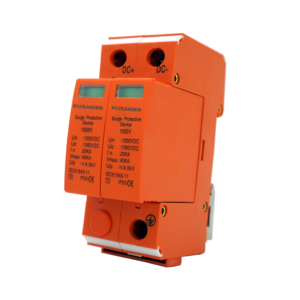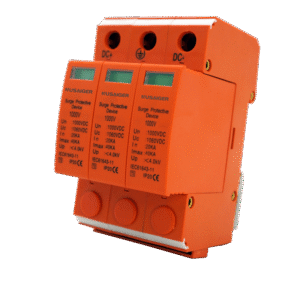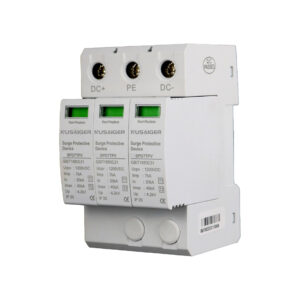Top Applications of Copper Terminals Across Industries: Automotive, Industrial, and Renewable Energy
Copper terminals are the backbone of modern electrical systems. Their superior conductivity, durability, and safety make them the preferred choice for a wide range of industries. From automobiles to solar power systems, copper connectors ensure that current flows reliably and efficiently. In this article, we explore the top applications of copper terminals across different industries, explaining why they remain the gold standard for electrical connections.
1. Why Copper Terminals Are So Widely Used
The popularity of copper terminals stems from three main factors:
- Electrical conductivity: Copper offers one of the highest levels of electrical conductivity among metals.
- Mechanical strength: It withstands vibration, tension, and environmental stress better than alternatives.
- Corrosion resistance: Tin-plated copper terminals last long even in harsh environments like marine and outdoor installations.
2. Automotive Industry
Modern vehicles are highly dependent on reliable electrical systems. Copper terminals are used extensively in:
- Battery connections: Ring and tubular copper lugs provide stable connections between car batteries and wiring harnesses.
- Starter motors and alternators: Heavy-duty copper terminals handle high current loads safely.
- Sensor systems: Precision copper terminals ensure accurate data transfer in ABS, ECU, and airbag systems.
- EV charging systems: Copper connectors are critical in electric vehicles to ensure fast, safe charging.
Because cars face constant vibration and temperature fluctuations, copper terminals are chosen for their ability to remain secure under extreme conditions.
3. Industrial Machinery and Manufacturing
Industrial machines require dependable connections to prevent downtime and hazards. Applications include:
- Motors and drives: Copper lugs connect power cables to large motors and variable frequency drives (VFDs).
- Control panels: Copper ring terminals ensure reliable signal transmission and power distribution.
- Heavy machinery: Excavators, cranes, and conveyor systems use copper terminals to connect high-current circuits.
- Automation systems: Copper spade terminals simplify quick connection and disconnection in PLC systems.
In industrial environments where downtime is costly, copper terminals provide consistent reliability and safety.
4. Power Distribution and Utilities
Copper terminals are essential in power distribution systems that transmit electricity from generation to end-users:
- Switchgear and transformers: Copper lugs ensure low-resistance connections for high-voltage equipment.
- Circuit breakers: Copper terminals prevent overheating during fault currents.
- Busbars: Copper connectors are widely used to link busbar systems in substations.
Their role in preventing energy loss and ensuring safety makes copper terminals indispensable in utilities.
5. Renewable Energy Systems
The renewable energy sector heavily relies on copper terminals due to the need for long-lasting, efficient connections.
- Solar power: Copper terminals connect solar panels to combiner boxes, inverters, and batteries.
- Wind turbines: Vibration-resistant copper lugs handle high currents in harsh environments.
- Energy storage systems: Copper terminals ensure stable connections in lithium battery banks.
In renewable energy, reliability is critical, as downtime can lead to significant power losses.
6. Marine and Offshore Applications
Ships, offshore platforms, and boats demand terminals that resist corrosion in saltwater environments. Tin-plated copper terminals are widely used in:
- Navigation and communication equipment
- Lighting and power distribution systems
- Engine and propulsion systems
- Battery and inverter connections
Here, the combination of corrosion resistance and mechanical durability makes copper the top choice.
7. Aerospace and Railway Applications
In transportation systems such as airplanes and trains, copper terminals play vital roles:
- Aerospace: Lightweight but reliable copper spade and ring terminals are used in avionics and cockpit systems.
- Railways: Copper lugs connect high-voltage lines powering locomotives and onboard electronics.
Both industries require terminals that can handle vibration, heat, and safety-critical conditions.
8. Residential and Commercial Wiring
Copper terminals are also widely used in residential and commercial electrical systems:
- Distribution boards and fuse boxes
- Air conditioning and HVAC systems
- Lighting and smart home devices
- Backup generators and UPS systems
The ease of installation and reliability make copper terminals the standard in building wiring.
9. Case Studies of Copper Terminal Applications
Case Study 1 – Automotive: A luxury car manufacturer reduced electrical failures by switching from mixed-metal terminals to copper-only terminals in battery and ECU systems.
Case Study 2 – Solar Energy: A 100MW solar farm used tin-plated copper terminals to prevent corrosion. After 7 years, inspection reports showed no failures.
Case Study 3 – Marine: A shipping company upgraded from aluminum to copper connectors in propulsion systems, significantly reducing downtime caused by corrosion.
10. Standards and Certifications for Applications
Across industries, copper terminals are governed by strict standards:
- UL 486A-486B: Wire connectors for copper conductors
- IEC 61238: Compression and mechanical connectors
- ISO/TS 16949: Automotive quality standards
- DNV and ABS standards: For marine equipment certification
11. Future of Copper Terminals in Industry
With the rise of electric vehicles, renewable energy, and smart manufacturing, the demand for high-quality copper terminals will continue to grow. Innovations include:
- Bimetallic terminals combining copper and aluminum
- Pre-insulated copper lugs for faster installations
- Eco-friendly plating materials for better corrosion resistance



